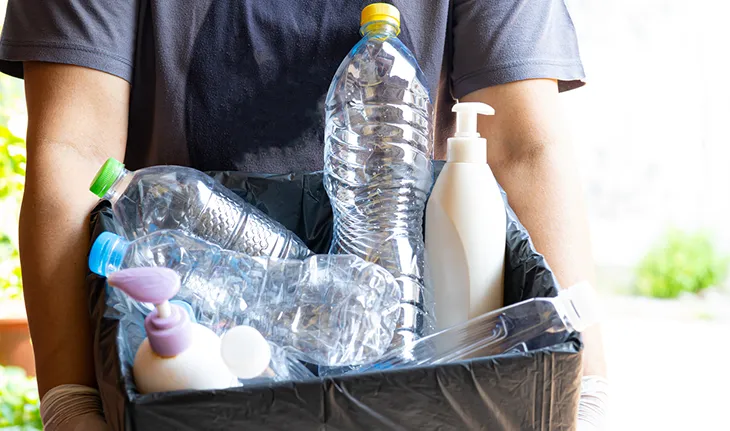How can we help
Please let us know what you need, and one of our team will get back to you promptly
Please let us know what you need, and one of our team will get back to you promptly
Articles

It’s no secret that plastic pollution is one of the greatest threats facing our natural environment. Over the past decade, environmental concerns have been rocketing up the agenda in boardrooms.
Despite the conversation around reducing environmental impact making its way to the mainstream, there is still a long way to go. According to the ABS, approximately 2.5 million tonnes of plastic waste is generated each year in Australia, with 84% being sent to landfill.
In 2021, the Department of Agriculture, Water and the Environment announced the Action on Plastic Waste plan.
While the government focusses on macro efforts to reduce plastic production, grassroots organisations are supporting households and businesses to reduce their plastics. One such movement is Plastic Free July.
An Australian initiative, the Plastic Free July campaign has seen huge uptake at the grassroots level. This July, we’re sharing our favourite tips to reduce plastic in your facility, in honour of Plastic Free July.
If your facility has a coffee shop nearby that staff tend to frequent, encourage them to adopt the reusable option, and take their own cup. This could be in the form of a reminder near the door, or a small stash of mugs or keep cups kept in eyesight of those venturing out.
The idea to keep in mind is making it as easy as possible for staff to remember to use their reusables.
Ensuring the kitchen in your facility is stocked with enough cutlery and crockery can also help to reduce plastic use. Avoid filling the kitchens with single use items, and instead opt for regular cutlery and crockery. Most facilities have kitchens equipped with a dishwasher, and the biggest challenge you may face is training staff to use it!
While removing vending machines would likely incur some wrath from facility users, encourage better choices by providing alternative options. Fresh fruit and bread, and a couple of condiments offer healthier options that can reduce the amount of plastic-wrapped vending machine options facility users would otherwise reach for.
Most facilities provide some tea and coffee to facility users. A little-known fact is that many brands of teabags contain microplastics. These tiny plastics are the ones that have become infamous for finding their way into the world’s oceans. For a physically small plastic, these plastics can have catastrophic impacts on the natural environment.
Providing leaf tea can make cleaning the kitchen a bit of a nightmare, and isn’t realistic for many. Instead, when providing tea, check that you are providing a brand whose teabags don’t contain microplastics.
It might not be a pretty topic, but the reality is that every facility needs a bathroom. The good news is that the bathroom provides plenty of easy swaps that can reduce plastic in your facility.
For starters, when procuring toilet paper for the bathrooms, opt for brands who provide paper-wrapped alternatives. In Australia, there are plenty of these providers around, with varying price points, and most will offer bulk discounts and corporate incentives.
Next, install built-in soap dispensers that can be refilled from a bulk pack. While less trendy than individual bottles, these on-the-wall dispensers save both product and plastics, being refilled from bulk packs.
While avoiding plastic all together is the golden standard for reducing the amount of plastic in the environment, recycling still plays an important role.
Conduct a bin audit to ensure you have the right bins for different recycling initiatives, and that these are clearly signed with what items go in what bin. Look into the recycling services provided by your local council, and set up a bin for Redcycle.
These tips are some simple steps that you can start today to reduce the amount of plastic waste created in your facility. In themselves, they might not immediately change the world, but every action contributes to an incremental improvement in the environment.
Keep on top of all the latest news and articles.
Subscribe to us today!